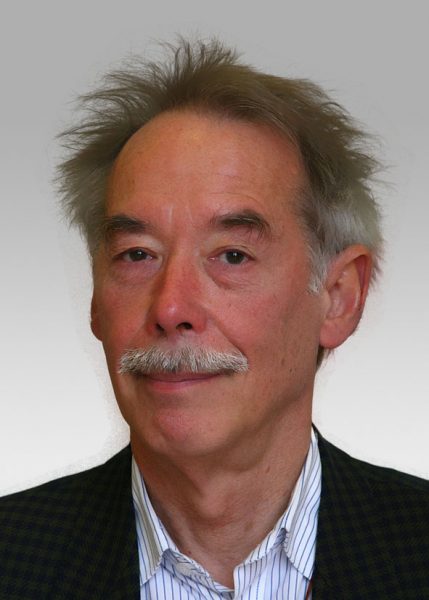In memoriam Wim van Palenstein Helderman
Published on: 29 March 2021

On January 21, 2021, Prof Dr. Wim van Palenstein Helderman passed away at the age of 77. Wim was a great advocate of preventive dentistry both at home and abroad.
He supported the Ivory Cross in the introduction of Gewoon Gaaf. It was his firm conviction:Attention to your own dental care is essential. It is the responsibility of the parents to teach their child self-care for the teeth. Familiarizing yourself with self-care becomes more difficult as the child grows. That is why care providers in oral care practice and at the consultation centers for mother and child must provide adequate education and information in motivational interviewing. ”
As an advocate of Gewoon Gaaf, he believed that the Gewoon Gaaf approach did not end when cavities developed in the temporal dentition: ”There will have to be a major change in the treatment of deciduous caries. Drilling and making fillings do not help against caries. This treatment is not necessary and hurts children unnecessarily. They become afraid of the dentist and become unmanageable. These children are referred for caries treatment under anesthesia. The number of children undergoing this treatment is increasing every year. This state of affairs is unacceptable and shows the bankruptcy of the current system of dental care for deciduous teeth”.
As guest editor of the 2010 NTvT special issue on caries treatment in children, Wim insisted that an article on NRCT be included in it despite protests from pediatric dentistry. This made Wim far ahead of his time, as can be seen from the place that NRCT occupies in the current guideline. Wim himself wrote two important articles about causal therapy in the NTvT: Caries: diagnostics, monitoring and guidance towards good oral care behavior (2011) and A turnaround in caries treatment in children: 'Gewoon Gaaf' (2015). He also co-authored an article about NRCT in the NTvG in 2011.
Wim van Palenstein had an extraordinary career in dentistry. After graduating from the Faculty of Dentistry of the University of Utrecht (RUU) in 1967 and completing military service, he became a full-time researcher at the department of preventive dentistry at the RUU. He obtained his PhD in 1975 on a periodontological subject. After a year of research at the Forsyth Dental Center in Boston, he returned to Utrecht in 1979. Due to the closure of the dentistry faculty in Utrecht in 1986, he ended up as professor of Preventive and Social Dentistry (1986-1994) after a secondment to dentistry from the University of Groningen in Dar el Salaam in Tanzania.
In 2002, Wim was appointed professor by special appointment at the WHO Collaborating Center of Radboud University Nijmegen for the chair of healthcare education and research in the field of dental care in developing countries on behalf of the Dental Health International Netherlands (DHIN) foundation. One of the highlights of his work in that period was the so-called 'Fit for School' project in Southeast Asian countries such as the Philippines, Indonesia, Laos and Cambodia. Here, brushing your teeth is part of a broad hygiene package such as washing hands and deworming at schools. Due to its lobbying, the involvement of local fluoride toothpaste manufacturers and the great success of reducing school absenteeism in the countries involved, this project has gained much acceptance and admiration from politicians and policy makers. With his mentorship style of patience, kindness, generosity, clarity, rigor and persistence, he provided opportunities for many postgraduate students from developing countries to pursue their careers in research, academia and public service.
Wim was not afraid to challenge paradigms and with his 'transverse thinking' he stimulated people to look at dentistry from a different perspective. For example, he showed that: pocket depth measurements were often biased by measurement errors, that a worn toothbrush also cleaned well and that breastfeeding could also be the cause of caries. Together with a PhD student in Tanzania, he concluded that: The practice of occasional scaling without repeated OHI, which is commonly employed in developing countries, should be considered as clinically irrelevant and of little use in improving the standard of periodontal health. When it came to treating caries in deciduous teeth, he constantly pointed out options other than unnecessary drilling and filling.
Many colleagues knew Wim. Older colleagues remember him as a microbiology teacher in Utrecht, he was a board member of the WTA of the NWVT, held positions at the NMT, was an advisor and board member of DHIN, wrote for the NT and was an editor of the NTvT. He received the Max Reneman Prize (1982) for his painting, a ribbon as an officer in the Order of Orange Nassau (2011) and the Theodoor Dentz Medal (2013) a high appreciation of Dutch dentistry. Wim supervised a total of 14 PhD students, 1 in Utrecht, 3 in Tanzania, 8 in Nijmegen (PhD students from Syria, China, Nepal, Philippines, Tanzania and South Africa) and 2 at ACTA. His PhD students and the co-authors of his many articles will remember his drive to make science serve the practice of oral care, his creativity in research and his pleasant way of working together.
The Ivoren Cross will remember Wim as a passionate preventative and his contribution to the further development of Gewoon Gaaf and other projects.
on behalf of the Scientific Advisory Board of the Ivoren Cross and the Board of the Ivoren Cross, Cor van Loveren and Rene Gruythuysen